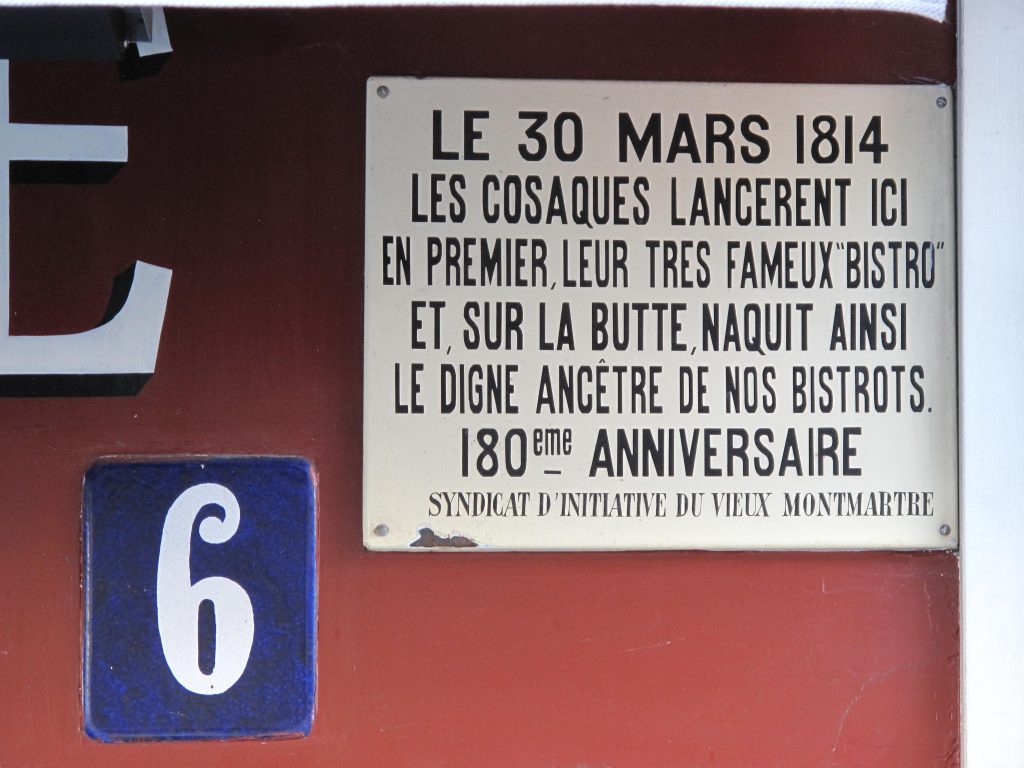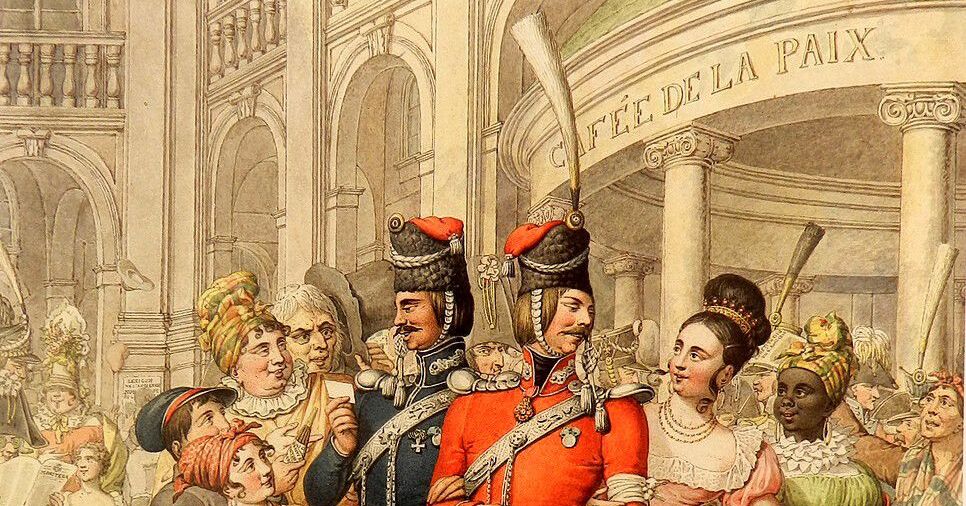It is widely believed that the names of the restaurants that appeared in France are associated with the era of the Napoleonic wars - supposedly the word bistro comes from the Russian word “quickly”. We checked whether this is actually true.
The details of the story that led to the emergence of this etymological version differ from source to source, but in general it boils down to the following: after the capture of Paris, a company of Russian military men drank in a small restaurant. They did not know French and, when the drinks ran out, they told the waiter in Russian: “Quickly!” Subsequently, this call was transformed into the French word bistro, which became a common noun. This version is also presented on tourist sites, and on the site "Military Review". Several users are confident in its reliability "Answers from Mail.Ru" and resource "The Big Question". In one of the French sites, dedicated to Napoleon, an even more extravagant version is put forward: supposedly the word “quickly” sung by the Cossacks was heard in a tavern by soldiers of the French army during the campaign of 1812.
Unfortunately for supporters of the “Russian” etymology of the word “bistro,” the chronology of events is not on their side. Authoritative historical dictionary Le Petit Robert fixes the first use of this word in French only in 1884, that is, seven decades after the appearance of the Russian army in the city. According to this edition, the etymology is related to dialectal French bistouille (“bad alcohol, poison”), and the word itself has two meanings: “wine merchant running a cafe” and “cafe, modest restaurant.” The probability that a word appeared and was not used for so many years, linguists evaluate like a small one. Experts also point out that simultaneously with bistro in the second half of the 19th century, the words bistraud (“little servant of the wine seller”) and bistingo (“cabaret”) appeared, which are not related to the Russian “quickly”.
Linguist David Gold leads a number of other arguments casting doubt on the version of the connection between the words “bistro” and “fast”. In particular, he studied guidebooks to Paris published in the 19th century and found no restaurants that were positioned as bistros. Gold also draws attention to the fact that in other European languages (for example, English and Italian) this word appeared only in the 20th century - if the version about the Russian roots of the word were true, then it is unlikely that for a hundred years no one would have mentioned it in travel notes or letters.
Apparently, the version about the connection between the French bistro and the Russian “quickly” appeared in the second half of the last century. The same David Gold notes that he did not find any mention of it in sources earlier than the 1970s. Most likely, this is no coincidence - on the 180th anniversary of the establishment “Mother Catherine’s”, which appeared shortly after the Great French Revolution, and now positions act like a bistro, on his wall placed memorial plaque. The inscription on this tablet tells about the Cossacks who shouted “Quickly!”, and supposedly “this is how the ancestor of all our bistros appeared.” In 2014 installed another tablet, with a Russian translation and the exact date of the “invention” of the word - March 30, 1814, day capture of Paris according to the Gregorian calendar. It is possible that both signs are nothing more than a marketing ploy, since French linguists think This etymology is implausible.

Not true
- https://arzamas.academy/mag/133-bistro
- https://www.grevisse.fr/le-blog-chroniques-grevisse/histoire-des-mots/bistrot-quelque-part-entre-la-russie-et-la-belgique
- https://fr.rbth.com/histoire/83363-bistrot-russie-russe-mot-napoleon-soldats
If you find a spelling or grammatical error, please let us know by highlighting the error text and clicking Ctrl+Enter.







